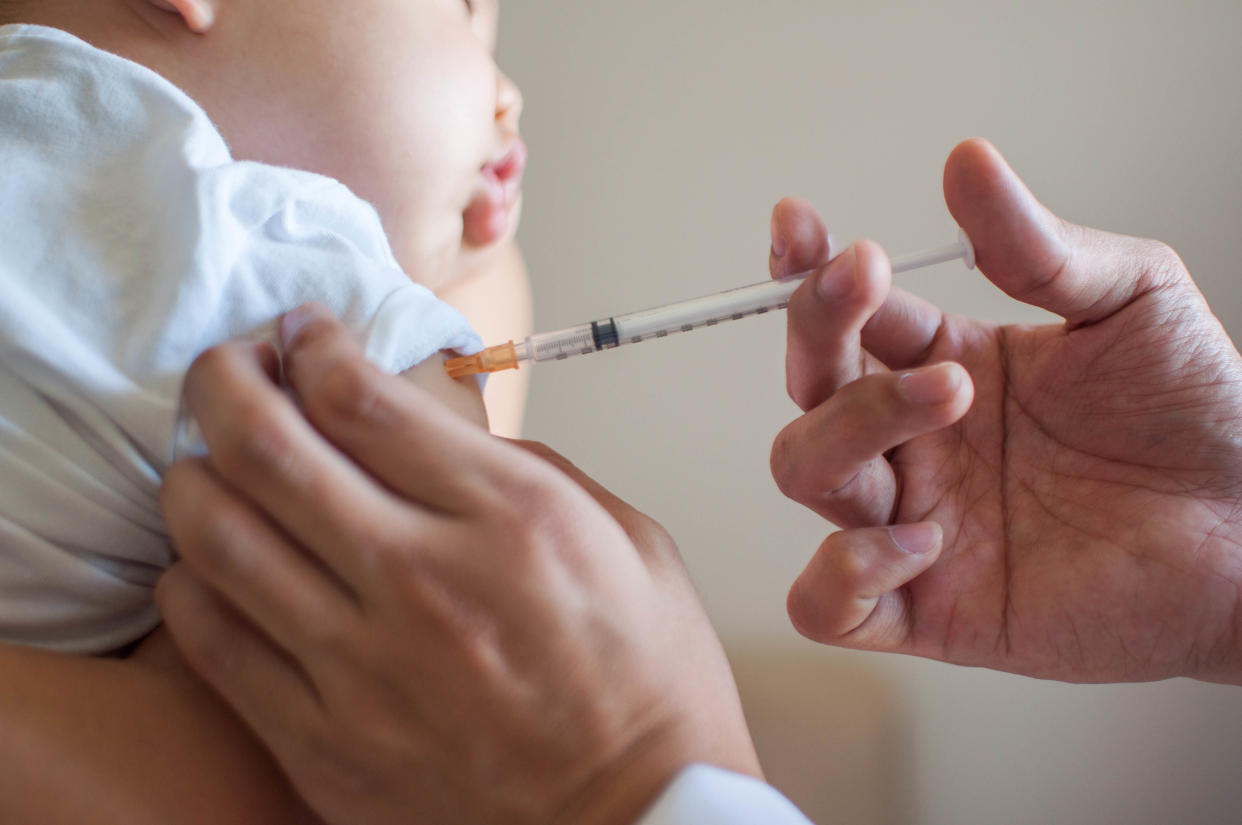N.Y. faces worst measles outbreak in years, as WHO deems anti-vax sentiments a 'top global health threat'

The World Health Organization (WHO) just released its annual list of the top 10 global health threats for 2019. The list includes some more obvious health issues like air pollution, Ebola, HIV and dengue, but one in particular stood out: vaccine hesitancy.
WHO defines vaccine hesitancy as “the reluctance or refusal to vaccinate despite the availability of vaccines” and says it “threatens to reverse progress made in tackling vaccine-preventable diseases.” Vaccinations currently prevent up to 3 million global deaths a year, and 1.5 million more could be prevented if vaccination rates improved, according to the WHO.
The impact of this has been seen in the U.S. as well. New York state is currently facing its worst measles outbreak in years, according to the New York Times, which points out that New York and New Jersey accounted for more than half the measles cases in the country last year. A measles outbreak in 2014 at Disneyland Park in Los Angeles also prompted the California school system to recently strengthen its laws on vaccinations in children.
Infectious disease experts are applauding the WHO’s move. “Vaccine hesitancy has the potential to erase many of the gains we’ve made in battling certain diseases,” infectious disease expert Amesh A. Adalja, MD, senior scholar at the Johns Hopkins Center for Health Security, tells Yahoo Lifestyle. “If you were to look at the top 10 list from another era, it would be dominated by smallpox and polio, but they’re not there because of vaccines.” Instead, people are now living long enough to develop noncommunicable diseases like cancer, diabetes and heart disease (which also made this year’s list), he says.
“I’m surprised and gratified by this,” William Schaffner, MD, an infectious disease specialist and professor at the Vanderbilt University School of Medicine, tells Yahoo Lifestyle. “I’m surprised because that must mean that this has become a problem that has really risen in WHO’s appreciation around the world. We all knew this was localized in the U.S., but it obviously has become a sufficiently large problem to make the top 10 list.”
Measles, for example, had been eradicated in the Western Hemisphere and now is back, Schaffner points out. “In the U.S., we have many vaccine-hesitant parents who are not bringing their child to prompt vaccination. That opens the door for reimportation of communicable diseases we thought we had defeated,” Schaffner says. Adalja says he’s concerned that people who aren’t vaccinating their children are “giving these infectious diseases a free pass. It’s serious — they can kill people.”
Ultimately, parents need to understand how bad these diseases can be, Schaffner says. “Most young parents have no experience with many of these diseases like diphtheria, polio and measles. That’s how successful the vaccines have been,” he says. “But we physicians, particularly older physicians, have seen these diseases and what they can do. Please, trust your doctor. Vaccinations are safe and they’re very important to the health and well-being of your precious children.”
WHO says it plans to ramp up work to eliminate cervical cancer worldwide this year by increasing coverage of the HPV vaccine, along with educating people on the importance of other vaccines.
Read more from Yahoo Lifestyle:
Teen’s service dog shot, killed outside of family home: ‘He was my best friend’
Doctors say nightmares on Tamiflu are ‘very common’ — here’s what you need to know
Follow us on Instagram, Facebook and Twitter for nonstop inspiration delivered fresh to your feed, every day.

